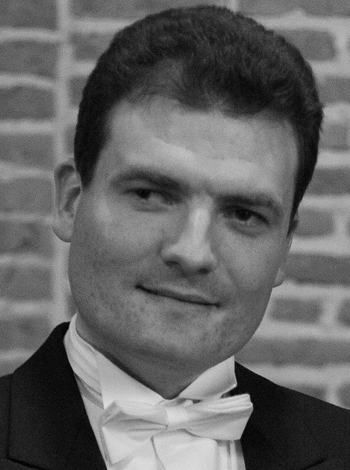Meet Your Professor: Steven van den Heuvel
In Meet Your Professor we will introduce you to the new teachers of seminars and courses at NOSTER. In this sixth episode, we introduce dr. Steven van den Heuvel (ETF), who will teach the Research Seminar on Religion and Climate Change (together with Professor dr. Gijsbert van den Brink).

How did you get to where you are today, academically? What path did you walk?
I started my academic journey studying theology at the HBO level (Higher Vocational Education). I pursued a program in Pastoral Ministry at the Christelijke Hogeschool in Ede, Netherlands. It was a great program that focused on religious practices. However, it constantly raised deeper questions I wanted to explore further. That’s when I learned about the opportunity to pursue a two-year master’s degree at the Evangelical Theological Faculty (ETF) in Leuven, Belgium, after completing a one-year preparatory program. I gladly took advantage of that opportunity. I enjoyed studying theology so much that I immediately continued with a doctoral study as an external PhD candidate.
After completing my PhD, an unexpected opportunity arose to work at ETF. Initially, it was a small appointment that gradually expanded through various funded research projects. Currently, I work as an Associate Professor of Systematic Theology and also serve as the Director of the Institute of Leadership and Social Ethics, one of the research institutes at ETF, where I am involved in shaping public theology.
What research do/did you conduct and why? Which result has stayed with you the most?
My research revolves around theological ethics, with a focus on environmental ethics, the theological ethics of Dietrich Bonhoeffer, and the ethics of hope. These areas are strongly interconnected; for instance, environmental ethics can benefit greatly from an ethics of hope. Additionally, Bonhoeffer’s thinking provides valuable insights that can be fruitful for both environmental ethics and an ethics of hope.
One significant research finding that has stayed with me is the importance of a positive and hopeful attitude in addressing the climate crisis. Much climate activism is driven by a discourse of despair, emphasizing immediate action to prevent it from being “too late”. While this sentiment is understandable and the call to action is justified, despair does not motivate people, especially in a prolonged and chronic crisis like climate change. What is needed is a positive “hope” goal to inspire real change. This involves reevaluating the significance of indivial-level behaviour changes. Although climate change requires systemic solutions, the importance of small individual steps, such as changes in our eating and travel habits, should not be underestimated. Recognizing and valuing these small steps can lead to hope for the larger changes that are also necessary.
What topics are covered in your module at NOSTER?
In the module “Religion and Climate Change,” which I co-teach with Gijsbert van den Brink (VU), we explore the multifaceted relationship between religion and climate change. Firstly, we discuss the historical dimension, including Lynn White Jr.’s proposition that Western Christianity contributed to the current environmental crisis. Secondly, we address the systematic-theological dimension: which theological and religious concepts can shape a new “theology of climate change”? We also examine various new religious practices that have emerged in response to the climate crisis. The seminars provide space for student presentations on their research and include readings of source texts.
Why is your module at NOSTER enjoyable/interesting? What attracts participants to the module?
Our module focuses on a highly relevant topic – climate change – studied in relation to religion and religious studies. Religion, especially from a global perspective, is a significant motivator for people, making it essential to explore this crisis from the perspectives of faith traditions. This exploration can play a vital role in inspiring behavioural change related to climate and broader environmental issues. Specifically, we concentrate on Christianity, demonstrating how Christian theologians tackle this challenge. Additionally, we also present theologians who oppose climate action for various reasons. This comprehensive examination, along with a global and intercultural approach, includes voices from the majority world, which adds to the module’s appeal.
Why is your module at NOSTER so fun/interesting? What appeals to the participants in the module?
I have observed that many young theologians and religious scholars have a keen interest in environmental issues, particularly climate change. It is a topic that deeply resonates with them, and given the seriousness of the climate crisis, this concern is entirely justified. There is a growing awareness that the climate crisis is intertwined with other crises, especially socio-economic inequality. In this regard, Pope Francis’s encyclical “Laudato Si'” explicitly addresses and argues for this connection. Recognizing the interrelated mechanisms of oppression and exploitation seems to be a characteristic development among the new generation of theologians and religious scholars.
What advice would you like to give to young researchers in religious studies/theology?
In our time, specialization is becoming increasingly prevalent, even within theology and religious studies. While specialization is crucial, it is also beneficial to occasionally take a broader perspective and delve into a topic that may not seem directly relevant to your own research. Surprisingly, this can lead to valuable insights that can further enrich your own research. Participation in NOSTER seminars can significantly contribute to this process!